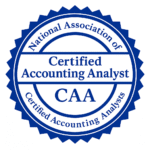
TEST QUESTIONNAIRE FOR ARBITRAGE ADMISSION
This test is designed to assess basic knowledge in the areas of cryptocurrency security, principles of arbitrage trading, and methods of storing digital assets. Its goal is to ensure that you possess the necessary understanding of key concepts and approaches that will allow you to work safely and effectively with digital assets within arbitrage strategies.
Passing the test is a mandatory requirement for engaging in arbitrage activities and allows the assessment of your readiness to make financial decisions in the context of the modern crypto economy.